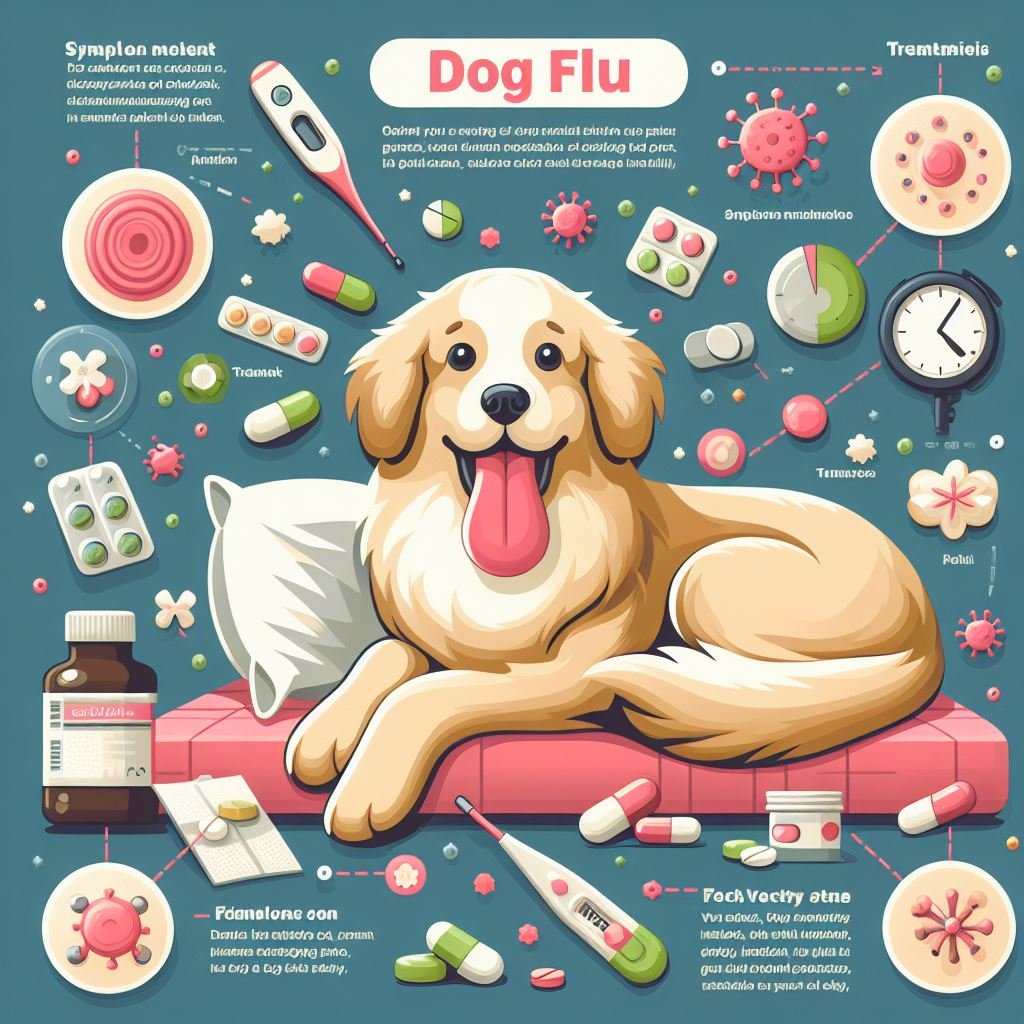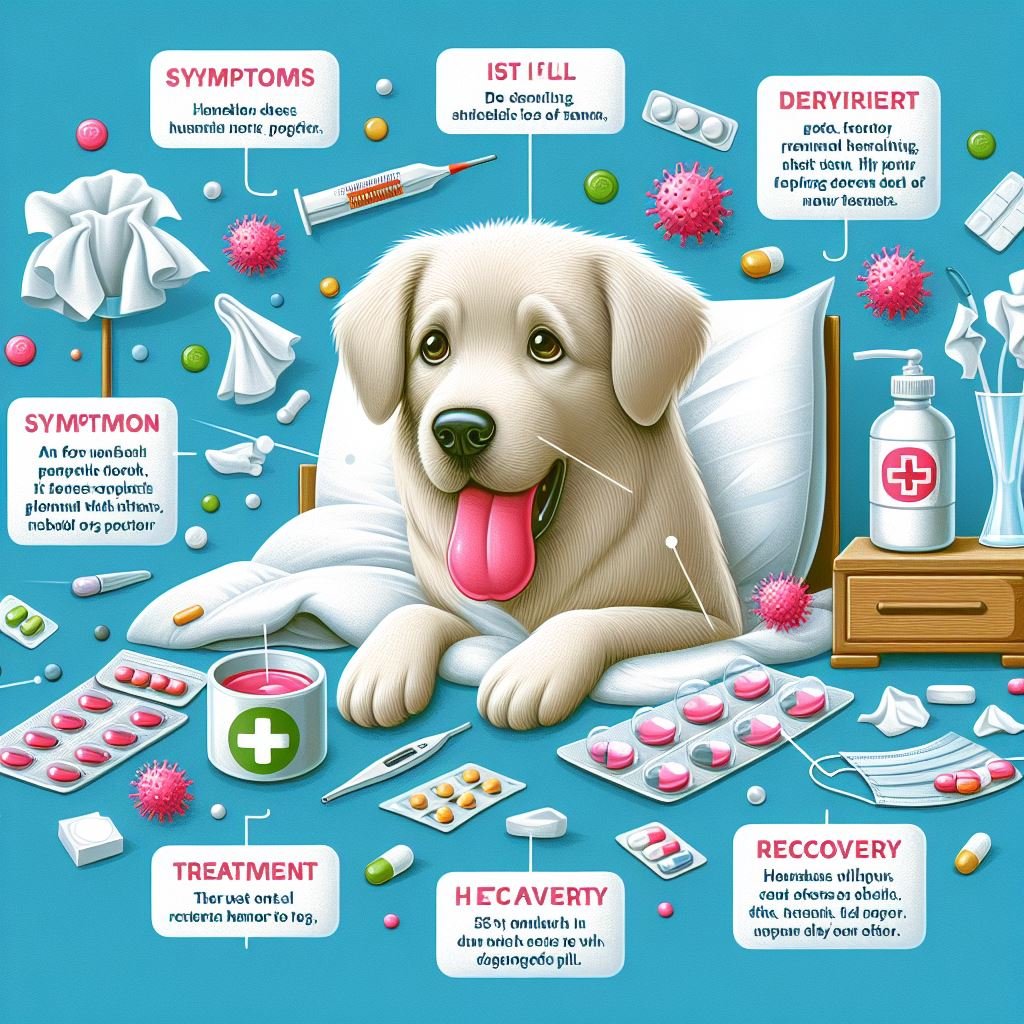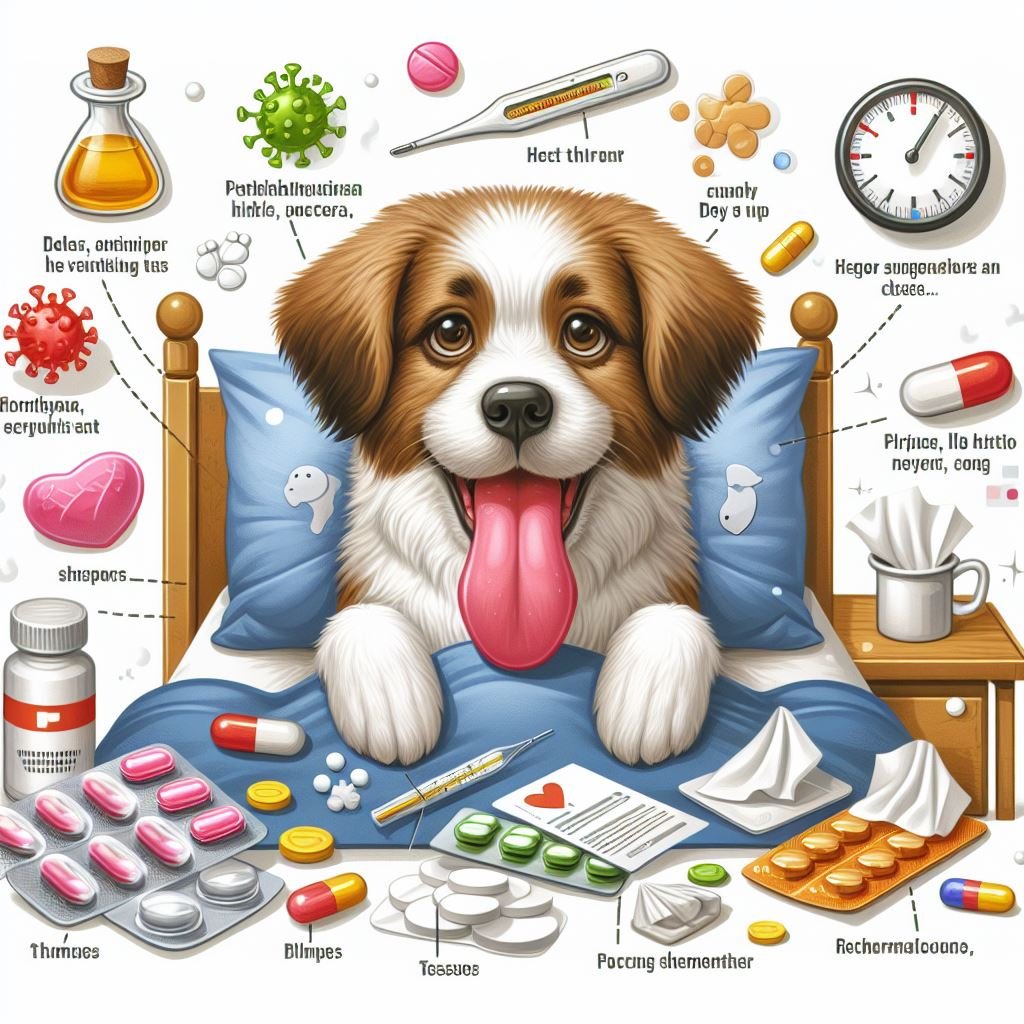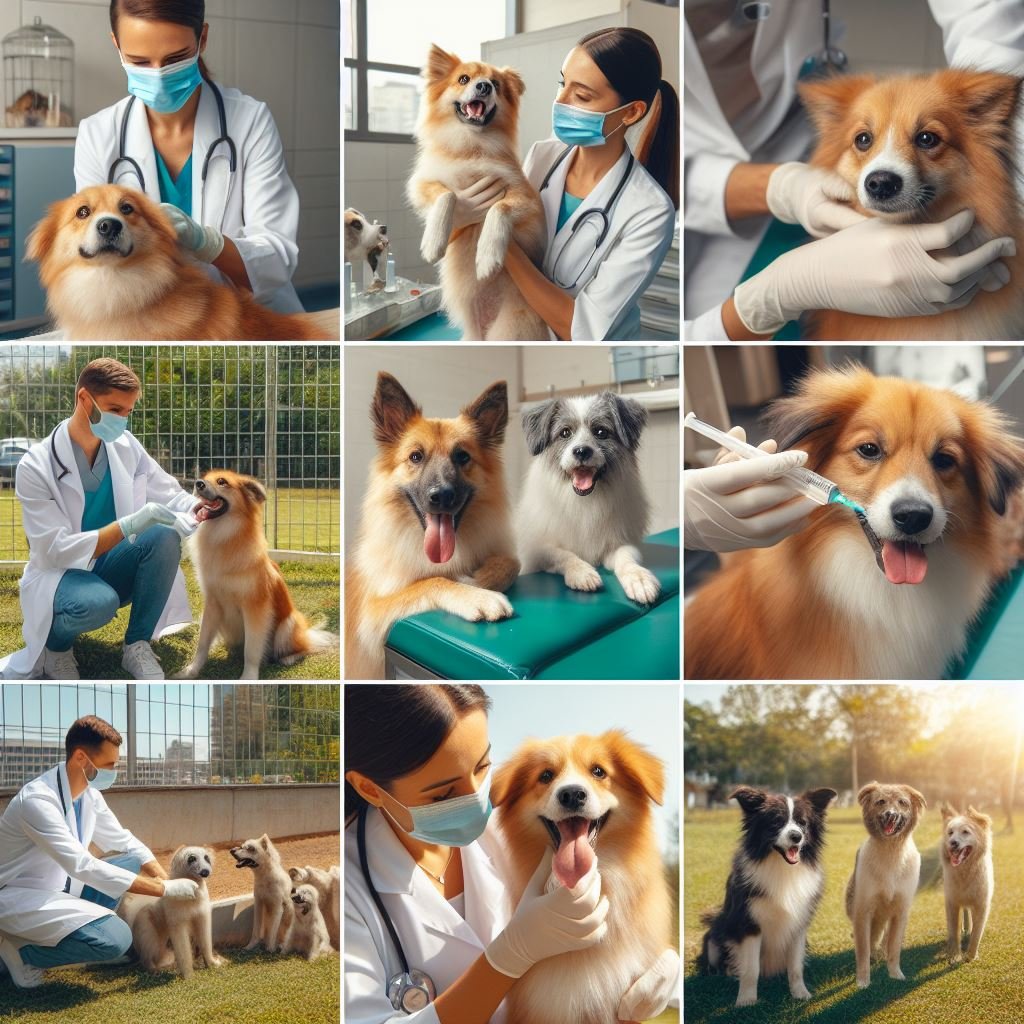Introduction:
In a recent interview with veterinarians and National Geographic’s Critter Fixers co-stars, Dr. Terence Ferguson and Dr. Vernard Hodges, valuable insights were shared regarding the mysterious and concerning canine influenza. As pet owners navigate the uncertainties surrounding this illness, the veterinarians shed light on its nature, symptoms, prevention, and potential implications for our furry companions. in this article we are discuss the how long does dog flu last.
Dog flu, also known as canine influenza, can send shivers down any dog owner’s spine. It’s a nasty respiratory illness that can leave your furry friend feeling miserable. But amidst the sniffles and coughs, one question inevitably pops into your head: how long does dog flu actually last?
Fear not, fellow dog lovers! This guide will equip you with the knowledge to navigate the canine flu journey with confidence.
How Long Does Dog Flu Last Rundown on Recovery:




Good news first: most dogs bounce back from dog flu within 2 to 3 weeks. It’s like a nasty human cold, only for pups. They might feel under the weather for a while, but with proper care, they’ll be back to their tail-wagging selves in no time.
However, there are some factors that can influence the duration:
- Severity of the illness: Some dogs get a mild case, while others experience a more severe form. The latter might take a bit longer to recover, potentially pushing the timeline to 4-6 weeks.
- Secondary infections: If your dog develops a bacterial infection on top of the flu, it can prolong the illness and require additional treatment.
- Underlying health conditions: Dogs with pre-existing health issues might take longer to fight off the virus and recover fully.
Signs to Watch Out For:
While most pups recover within the typical timeframe, it’s crucial to monitor your dog closely for any red flags:
- Persistent coughing: This is the hallmark sign, and it can last for several weeks.
- Lethargy and fatigue: Your usually energetic pup might become a couch potato.
- Loss of appetite: Food suddenly becomes unappealing.
- Fever: A sign that the body is battling the infection.
- Difficulty breathing: If your dog seems to struggle to breathe, seek immediate veterinary attention.
Canine Flu Outbreak Subsides




Good news for dog owners! The recent canine flu outbreak that had been causing concern seems to be subsiding. While the virus is still circulating, the number of new cases has significantly decreased, prompting animal health officials to ease their guidance for dog owners. This means that pups can cautiously resume their normal social activities, such as visiting dog parks and attending doggy daycares. However, it’s still important to be vigilant and watch out for any signs of illness in your furry friend. If you notice any coughing, sneezing, or lethargy, be sure to contact your veterinarian right away.
Remember, vaccination is the best way to protect your dog from canine flu in the future. If you haven’t already, talk to your veterinarian about getting your pup vaccinated. Let’s all wag our tails in relief that this outbreak is under control and work together to keep our canine companions healthy and happy!
Remember, you’re not alone!
If you’re ever unsure or concerned about your dog’s progress, don’t hesitate to contact your veterinarian. They can assess your dog’s individual situation and provide the best course of action, be it rest, medication, or further tests.
Understanding the Illness: A Mystery Unveiled:
Dr. Ferguson acknowledged the current mystery surrounding the canine influenza, emphasizing the challenge it poses to veterinarians. Amidst the usual seasonal respiratory diseases in dogs, a novel illness adds complexity, requiring careful consideration of treatment, severity, and transmission.
Symptoms to Watch For: Identifying Canine Influenza:
Dr. Hodges highlighted key symptoms that should alert dog owners. These include excessive coughing, eye discharge, fever, difficulty breathing, nasal discharge, and lethargy. Immediate veterinary attention is crucial, as canine influenza is a fast-evolving disease that can turn fatal if left untreated.
Transmission and Precautions: Navigating the Unknown:
The veterinarians discussed the uncertainty surrounding the disease’s spread. Drawing parallels with other illnesses like influenza, they suggested avoiding areas with outbreaks, such as kennels and dog parks. Caution is advised until a clearer understanding and control are established.
Promoting Pet Health: Everyday Measures for Dog Owners:
Dr. Hodges stressed the importance of vaccination, especially against kennel cough and the flu. Given the virus’s ability to mutate, regular veterinary checks and proper hygiene, like avoiding heavily populated pet areas, are essential. These small everyday measures can contribute significantly to pet well-being.
Bonus Tip:
While your dog recovers, isolation is key. This helps prevent the spread of the virus to other pups. Spoil your furry friend with a cozy corner, their favorite toys, and lots of cuddles (from a safe distance, of course!).
Read More: How Long Does Dog Flu Last
By understanding the typical duration, recognizing the potential roadblocks, and seeking veterinary guidance when needed, you can ensure your dog gets the best care possible during their canine flu journey. Remember, patience, love, and maybe a few extra belly rubs are the ultimate recipe for a speedy recovery!
Conclusion: Empowering Pet Owners in the Face of Uncertainty:
As the mystery of canine influenza unfolds, the insights from Dr. Terence Ferguson and Dr. Vernard Hodges empower pet owners to navigate these uncertain times responsibly. Vaccination, vigilance for symptoms, and cautious everyday practices become the tools to safeguard our beloved pets. In the spirit of Animal Vised’s commitment to animal welfare, staying informed and proactive remains key in ensuring the health and happiness of our four-legged companions.
FAQs
1. How long does dog flu last?
Answer: The duration of dog flu, or canine influenza, varies based on factors such as the severity of the infection and the overall health of the dog. Generally, most dogs recover within 2 to 3 weeks. However, the recovery timeline can be influenced by the dog’s age, immune system strength, and the presence of underlying health conditions.
2. How do you treat a dog with the flu?
Answer: Treating a dog with the flu involves supportive care to alleviate symptoms. Provide a comfortable and warm environment, ensure proper hydration, and offer easily digestible food. Consult with a veterinarian for professional guidance. In severe cases, medication may be prescribed to manage symptoms, and hospitalization could be necessary.
3. What is the season for dog flu?
Answer: Canine influenza does not have a specific season. It can occur throughout the year. However, increased dog-to-dog interactions, such as during kennel stays or dog shows, may contribute to higher transmission rates. Vigilance and preventive measures are crucial year-round.
4. Is dog flu an emergency?
Answer: Canine influenza can become an emergency, especially if symptoms are severe. Difficulty breathing, persistent coughing, lethargy, and other concerning signs warrant immediate veterinary attention. Early intervention is key to a faster and smoother recovery for your furry friend.
5. How do you check a dog for the flu?
Answer: If you suspect your dog has the flu, observe for symptoms like coughing, nasal discharge, lethargy, or changes in behavior. A veterinarian will conduct a thorough examination, possibly including diagnostic tests to confirm the presence of the virus. Early detection allows for timely and appropriate treatment.
6. Can you treat dog flu at home?
Answer: While supportive care at home can help ease symptoms, professional veterinary guidance is essential. Provide a comfortable space, maintain hydration, and ensure proper nutrition. Over-the-counter medications are not recommended without consulting a vet, as they may not be suitable and could exacerbate the condition.
7. How can I treat my dog’s cold naturally?
Answer: Natural remedies for a dog’s cold include ensuring warmth, offering chicken broth for hydration, and maintaining a stress-free environment. Consult your veterinarian for guidance on natural supplements, and avoid using human medications without professional advice. Regular veterinary check-ups contribute to overall health and may catch early signs of illness.










